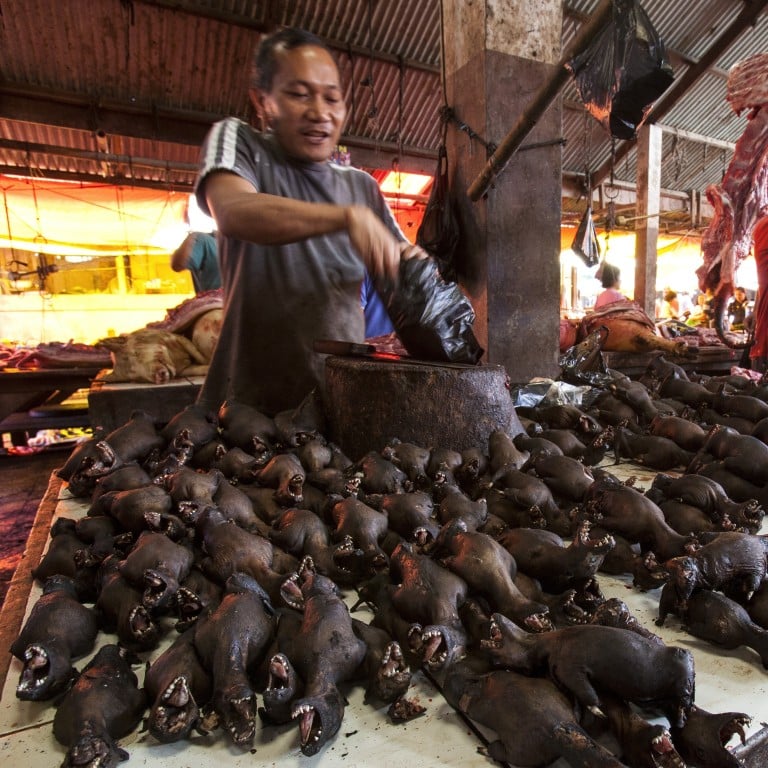
Coronaviruses are widespread among bats and rats sold for food, study warns
- Study by Vietnamese researchers highlights how wild animal trade increases risk of humans becoming infected by diseases such as Covid-19
- Coronaviruses were found in 58 out of 70 sites studied in the south of the country
Coronaviruses were widespread in some wild animal trade networks, according to a new study that highlights the increased risk of transmitting diseases such as Covid-19 to humans.
The study was based on an analysis of animals collected in southern Vietnam between 2013 and 2014, in which scientists found various coronavirus strains in bats and rats sold for food.
“Human behaviour is facilitating the spillover of viruses, such as coronavirus, from animals to people,“ the study said.
“The wildlife trade supply chain from the field to restaurant and end consumer provides multiple opportunities for such spillover events to occur.”
The current pandemic is the latest example of how coronaviruses that originate in animals have caused deadly diseases in humans.
Coronavirus ‘close relative’ found in bats in China
The 2003 severe acute respiratory syndrome outbreak was probably caused by a coronavirus that originated in bats, while camels were a major host for the virus that caused Middle East respiratory syndrome.
The Covid-19 outbreak was first reported in a seafood and animal market in the central Chinese city of Wuhan.
Although the exact source of the new virus, known as Sars-CoV-2, remains unclear, research suggests that it is likely to have come from bats in Asia.
The authors of the latest study included researchers from the non-governmental group Wildlife Conservation Society and Vietnam’s Ministry of Agricultural and Rural Development.
As part of the study, scientists examined wild rats sold as food at markets and restaurants in three provinces in southern Vietnam as well as bats raised for their guano – a much valued fertilizer.
Out of the 70 sites sampled, coronaviruses were detected in 58, including all of the 24 live rat trade sites, 17 of the 28 rodent wildlife farm sites and 16 of the 17 bat guano farms, and at the one natural pteropid bat roost.
Although the types of the coronaviruses found were not human pathogens, scientists said the poor condition of the captured animals, the mixture of different species and their contacts with traders and consumers increased the risk of viruses crossing to humans.
In some cases, bat or avian coronaviruses were found in rodents raised on wildlife farms – a mixture that raises the risk of the viruses combining, which increases the risk to humans.
“The high proportion of coronavirus positive samples at these human-wildlife interfaces highlights the potential for human exposure to wildlife origin coronaviruses,” the scientists wrote in a study published in PLOS One.
“Livestock and people living in close contact with rodents, bats, and birds shedding coronaviruses provides opportunities for intra and inter-species transmission and potential recombination of coronaviruses.”
Coronavirus weaker than Sars but may share link to bats, Chinese scientists say
The study recommends restrictions on “the killing, commercial breeding, transport, buying, selling, storage, processing and consuming of wild animals” to minimise public health risks in future.
The Covid-19 pandemic has prompted governments to impose stricter bans on wildlife trade, but it is unclear if such bans could be enforced in regions where the consumption of animals like rats and snakes has long been popular.
The Chinese government has fast-tracked a ban on trading and eating wild animals.
In July, the Vietnamese government, which had been accused of turning a blind eye towards wildlife trade in the past, vowed to eliminate illegal wildlife markets.

